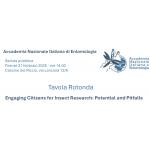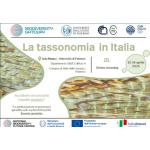PhD position available at the University of Padova (Italy), Dept. of Comparative Biomedicine and Food Science
Deadline for application: May 13th 2022
Salary: 1100€/month
Description of Research Topic:
In teleost fish, sex determination mechanisms are extremely diverse ranging from the presence of evident heterochromatic sex chromosomes to simultaneous hermaphroditism. When genetic sex determination (GSD) is observed the underlying mechanisms might be diverse even between closely related species or within the same species. In several fish species of aquaculture interest, it would be of great benefit to have tools that allow sex identification during early developmental stages. It is the case of the flathead grey mullet (Mugil cephalus), whose roe is a highly sought seafood consisting of raw or dried female gonads. In some Mediterranean areas it represents an important product for the local economy. Genetic markers at the FSHR (follicle-stimulating hormone receptor) gene were recently identified in M.c. by means of whole-genome sequencing (Ferraresso et al., 2021). However, genetic screening of natural populations from different geographic origins showed an incomplete penetrance of this character underling the possibility that also other genetic and non-genetic (environmental) factors may play a role in sex-determination of M.c. This project has 5 lines of possible development: 1) genomic scan searching for additional markers of sex determination in M.c., 2) application of the existing markers for sex sorting in early fish developmental stages aimed at raring only female individuals for “bottarga” production; 3) genotype-assisted individual breeding in order to maximize the percentage of female offspring; 4) extension of the population analysis to gain a wider geographic picture of the penetrance of the FSHR sex-associated markers; 5) extend the genetic/genomic study to other mullet specie (i.e. Liza spp.) that are relevant for “bottarga” production.
Contact mail for interested candidates: tomaso.patarnello@unipd.it
Salary: 1100€/month
Research Topic Title: Genetic/Genomic basis of sex determination in fish of aquacolture interest
Tutor: Prof. Tomaso PatarnelloDescription of Research Topic:
In teleost fish, sex determination mechanisms are extremely diverse ranging from the presence of evident heterochromatic sex chromosomes to simultaneous hermaphroditism. When genetic sex determination (GSD) is observed the underlying mechanisms might be diverse even between closely related species or within the same species. In several fish species of aquaculture interest, it would be of great benefit to have tools that allow sex identification during early developmental stages. It is the case of the flathead grey mullet (Mugil cephalus), whose roe is a highly sought seafood consisting of raw or dried female gonads. In some Mediterranean areas it represents an important product for the local economy. Genetic markers at the FSHR (follicle-stimulating hormone receptor) gene were recently identified in M.c. by means of whole-genome sequencing (Ferraresso et al., 2021). However, genetic screening of natural populations from different geographic origins showed an incomplete penetrance of this character underling the possibility that also other genetic and non-genetic (environmental) factors may play a role in sex-determination of M.c. This project has 5 lines of possible development: 1) genomic scan searching for additional markers of sex determination in M.c., 2) application of the existing markers for sex sorting in early fish developmental stages aimed at raring only female individuals for “bottarga” production; 3) genotype-assisted individual breeding in order to maximize the percentage of female offspring; 4) extension of the population analysis to gain a wider geographic picture of the penetrance of the FSHR sex-associated markers; 5) extend the genetic/genomic study to other mullet specie (i.e. Liza spp.) that are relevant for “bottarga” production.
Contact mail for interested candidates: tomaso.patarnello@unipd.it






